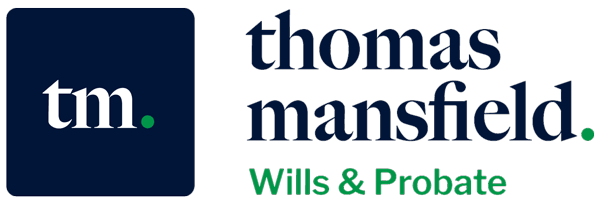Financial Planning
The importance of financial planning
Our private client lawyers will discuss how you can pass any property you leave so the maximum goes to your family and friends and the minimum to the tax man!
Looking at how your property will pass on death is also the moment to look at your financial plans more generally. Our solicitors don’t give investment advice but they can point you in the direction of an independent financial advisor (IFA). This is the help you need to keep and grow your assets to pass on to your loved ones.
Referral to a financial advisor
There are two kinds of financial advisor. Some are IFAs who are required to search the whole market for products, which might be suitable for your needs as well as every different type of asset.
On the other hand there are restricted advisors who will consider a select range of investment products and providers.
We will always refer you to an IFA. However in some circumstances a restricted advisor may be the right fit. We will tell you if we are referring you to a restricted advisor.
If there is any financial interest on behalf of the firm in referring you to an advisor we must tell you: remember we are regulated to protect you as our client!
How are we regulated?
The firm is regulated by the Solicitors Regulation Authority and not by the Financial Conduct Authority. So, we can help you put in place an investment strategy and any associated tax advice once you have received advice from an independent financial advisor (IFA).
We can:-
- introduce you to an IFA who can give advice on types of investments such as shares or stock, government securities, insurance contracts, mortgages, deposit bank accounts, rights under a funeral plan contract or debenture
- help you arrange deals on the advice of an IFA as long as we are not advising you on the investment itself.
- manage investments as a trustee of personal representatives. This allows us to make arrangements to look after and safeguard investments. We can charge for our time
- save and sell assets in the process of managing the estate person who has died.
Remember, if we receive any financial benefit from a referral to a financial adviser like an IFA we are always open about this.
In carrying out investment management for you or your trustees/personal representatives we cannot:-
- Engage in market making and dealing
- Operate a regulated collective investment scheme
- Advise you to become a member of a particular Lloyds (insurance) Syndicate
- Manage a Stakeholder Pension Scheme
We can help in obtaining insurance but with limitations.
We are subject to the Conduct of Business Rules
Where we help with investment activity there are safeguards:-
- We keep records of commissions
- Systems to safeguard assets:-
- Registering assets in the client’s name
- Recording the title of documents held and looking after the documents
- Keeping a central record of documents held
- Checking records against title documents at least once a year
- Reporting to clients at least once a year on title documents held
- Acknowledging the receipt of property where assets are passed to a third party; if you instruct us to do this we need this to be in writing
CALL US TODAY
Call us now on 0808 256 2917 for a confidential and no obligation initial discussion or email [email protected].
Responsibilities of IFAs
When we refer you to an IFA we do so knowing that they are strictly regulated.
The advisor (IFA) must know their clients
This involves getting all relevant and personal financial details from the client. Then the adviser must determine the suitability of investments for your particular needs.
Information gathered is:-
- name, address, occupation, date of birth and retirement as well as marital status and employment status.
- Details of family such as spouse, civil partner, children and grandchildren.
- Details of any gifts made previously (which can have a tax impact) and whether outright or in trust.
- Whether there is a Will in place.
Under the Money Laundering Regulations 2007 there is a requirement to identify not only the client but beneficial owners such as under a Trust
- an individual who has an interest in 25% of Trust property or more
- the type of person for whom the Trust is set up
- who has control over the Trust.
In terms of financial details the IFA needs to know:
- Current assets and liabilities
- Current income and expenditure.
In looking at the assets held the advisor will be considering whether the assets are held in ’safe‘ forms such as bank or building society deposits. Such savings may be secure but low interest means inflation takes its toll.
Investments in high yielding income investments may provide a good income but with greater risk. You may also be bumped into a higher tax bracket, 45% in some case.
The IFA will also consider protection such as life insurance. Sometimes this is for particular needs such as repayment of a mortgage, income on retirement or to cover school fees.
The advisor will also consider if an occupational pension or personal pension scheme is in place and/or is that you are paying the necessary national insurance contributions to ensure you get a State pension. You might also have a top up state pension known as the State Earnings Related Pension.
In addition to personal pension schemes occupational schemes are now provided by employers under the Government Auto Enrolment Rules, which mean that most employees are within a pension scheme to which both they and their actual employer make a contribution.
Since 2001 a number of people have also been in Stakeholder Pension Schemes, which are a low cost and flexible personal pension.
The advisor will talk about the tax benefits of being in a pension scheme.
Another issue for the advisor to discuss are assets which only one spouse holds. It is worth looking at options for joint ownership to protect a surviving spouse and tax implications.
Factors for an IFA to consider in developing an investment strategy are:-
- Age:If you are in your 20s or 30s you may have a cash shortage and need to keep their cash aside as a cushion but saving early has the benefit of long term growth
- In middle age you may need maximum capital growth for pensions but still be burdened by the cost of school and university fees.
- At retirement you may have fewer commitments and might want income rather than growth. You might get a tax free capital sum from your pension and want to know how to invest it.
- If you are an older client will need to take the best advantage of personal tax allowances.
- You need to consider what happens if you lose mental capacity to make decisions. A Lasting Power of Attorney is advisable to cover this eventuality because otherwise decisions for your welfare will be delayed
Portfolio Planning
A financial advisor will look at the following needs:-
- Cash which is easily available, typically saved in a Bank or Building Society
- Ensuring that proper protection is in place through life assurance
- Pension
- Longer term investments with other spare cash
- The risk level of different types of investment.
- Low risk investments are saving accounts, Government stocks and National Savings.
- Medium risk could be Unit Trusts, Investment Trusts, shares in public companies, loans to companies, financial institutions and local authorities.
- Higher risk (but possible higher return) are shares in small public companies and private companies, works of art and woodland.
- Is the investment for a short term or a long term goal?
- Long term: capital growth is important
- Short term: income is important
- Different savings types have different tax implications.
CALL US TODAY
Call us now on 0808 256 2917 for a confidential and no obligation initial discussion or email [email protected].







